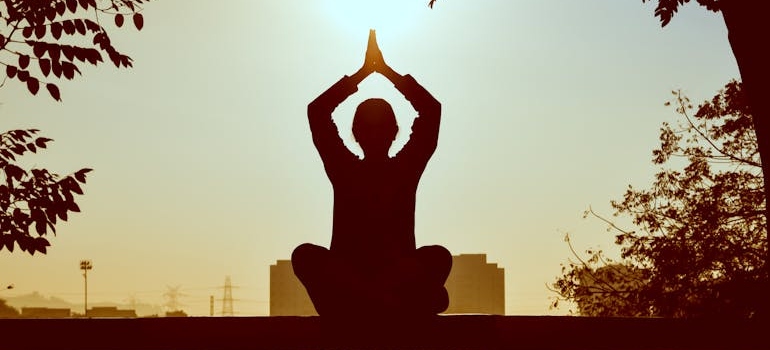Mental health in young adults is a crucial concern, touching lives across generations, particularly Millennials and Generation Z. These groups navigate a world filled with rapid technological advances and economic fluctuations, all of which influence their mental well-being. The way they manage stress, engage socially, and meet societal expectations plays a big role in their overall health. This discussion will shed light on the unique experiences and challenges faced by these young adults. We’ll also highlight how rehabs in WV are stepping up to support mental health, providing essential services that foster hope and facilitate recovery. Join us as we explore these vital issues, offering practical advice and insights to help you understand and support the mental health needs of the younger generations.
Who are Millennials?
Millennials are the demographic of people who followed Generation X and leading Generation Z. Popular media and researchers use the early 1980s as beginning birth years and the mid-1990s to early 2000s as closing birth years as the defining range for the millennial generation. Most millennials are the kids of baby boomers and Generation Xers and often the parents of Generation Alpha.

The millennial generation is usually marked by mobile devices’ familiarity, high usage of the internet, and social media, which is why they are sometimes labeled digital citizens. The coronavirus and Great Recession have significantly impacted this generation because they’ve created historically high unemployment levels among millennials. Economic growth and youth unemployment usually are negatively correlated, meaning millennial workers have it worse than their elders through a recession.
Millennials and Mental Health: A Closer Look at the Numbers
Millennials face unique mental health challenges, with many unsure of where to seek help. Here’s a snapshot of their experiences:
- 85% are comfortable working or befriending someone with a mental health issue.
- Over 60% would consider dating someone facing mental health challenges.
- More than 70% are open to therapy, yet less than 50% would share their mental health struggles with friends.
- Over 50% would support a political candidate with a mental health disorder.
- Approximately 75% are open to discussing mental health publicly.
- Only 49% rate their mental health as excellent or good.
- Nearly 75% believe improvements are needed in mental health therapy, emphasizing the need for accessible individual therapy for addiction.
Who is Generation Z?
Generation Z is the next future generation to look out for, born with the internet, smartphones, and technology directly at their fingertips. Demographers and experts state that Generation Z is the group of children born from 1997 to 2012, with the end year highly debated as those people age.
Gen Z accounts for about 61 million people across the nation. Gen Z grew up differently than the past generation, thus living vastly different lives and expectations for the future.

Generation Z’s Mental Health Challenges
This generation faces unique mental health challenges compared to other age groups. Here’s a clearer view of what they’re up against:
- 27% of Gen Z rate their mental health as poor or fair, which is higher than the rates seen in Millennials (15%) and Generation X (13%).
- 37% of Gen Z have sought help from mental health specialists, a number slightly higher than Millennials (35%).
- Over 90% experience emotional or physical symptoms from stress, such as sadness, low energy, or lack of motivation, yet only half feel capable of managing this stress.
- More than 30% worry about personal debt and housing issues.
- Three in ten are concerned about food security.
- 75% are significantly stressed by mass shootings.
- Nearly 57% feel heightened stress from news about social issues like immigration and sexual harassment.
The Differences Between Millennials and Generation Z
Did you know that Millennials and Generation Z have some unique characteristics that set them apart? Here’s what makes each group stand out:
- Approach to education and work: Generation Z is proactive about avoiding debt, often turning hobbies into careers or starting their own businesses. They’re also more driven than Millennials when it comes to financing their education.
- Technology use: Gen Z beats Millennials in tech usage, spending at least three hours daily on gadgets after school. They usually handle four or more screens and prefer communicating almost exclusively through digital platforms and social media.
- Reactions to economic and social changes: Raised during tough times like the Great Recession and post-9/11 era, Gen Z matured quickly, focusing more on personal goals than broader social justice issues, unlike Millennials. They prioritize their own future over societal concerns.
Addressing Mental Health in Young Adults Through Social Media
Research shows that social media is a vital tool for emotional support, especially when discussing mental health in young adults. It’s incredibly beneficial for minority groups, such as the LGBTQ+ community, disabled individuals, and people of color. Social media fosters digital communities where users with similar experiences can connect, share, and grow together.
For Millennials and Gen Z, these platforms offer a space to express creativity and explore diverse interests, which is crucial for those in rural areas where social opportunities may be limited. By participating in these online networks, young adults can find advice, support, and a sense of belonging. This connectivity not only combats loneliness but also helps build resilience and a positive personal identity, contributing to their overall mental well-being.

Key Reasons Behind Mental Health Struggles in Young Adults
Young adults face numerous mental health challenges, often leading them to seek solace in addictive behaviors. Here are five reasons why young adults may struggle with mental health:
- Pressure to succeed: Academic and career pressures can be overwhelming, creating intense stress and anxiety.
- Social media influence: Constant exposure to curated lives can distort reality, impacting self-esteem and expectations.
- Economic uncertainty: Financial stress from job insecurity and debt can provoke significant anxiety and depression.
- Isolation: Despite being hyper-connected online, many feel a profound sense of loneliness and disconnection.
- Traumatic experiences: Incidents of trauma, whether personal or societal, can lead to lasting emotional pain.
Addressing Substance Use: Stats and Solutions for Young Adults
Addiction issues are alarmingly common among young adults, often stemming from underlying mental health problems. The stress of navigating modern life’s complexities can lead young people to seek escape through substance use. Here are some sobering statistics that highlight the extent of substance abuse amongst adolescents:
- Approximately 1 in 14 young adults used hallucinogens.
- Approximately 1 in 17 young adults used cocaine.
- Approximately 1 in 18 young adults misused opioids.
- Approximately 1 in 22 young adults misused prescription benzodiazepines.
- Approximately 1 in 125 young adults used methamphetamine.
- Approximately 1 in 200 young adults used heroin.
These figures underscore the urgent need for effective drug rehab for young adults. Recognizing the signs of addiction and the mental struggles that often accompany them is crucial. Next, we’ll explore some of the best treatment options available to address these issues, aiming to provide hope and recovery paths for those affected.

Understanding Dual Diagnosis: Mental Health and Addiction
When someone struggles with both a mental health disorder and an addiction, it’s called a dual diagnosis. This can complicate recovery because both issues interact and affect each other. For instance, depression might lead someone to drink, and heavy drinking could worsen the depression. It’s a challenging cycle to break without the right help.
In West Virginia, dual diagnosis treatment is tailored to address both mental health and substance use disorders simultaneously. This comprehensive approach ensures that all underlying issues are treated together, which can significantly improve outcomes. For example, a study showed that individuals receiving integrated treatment for dual diagnosis are more likely to stay in therapy and experience fewer relapses. If you or someone you know is navigating these challenges, reaching out for dual diagnosis treatment West Virginia residents trust can be a crucial step toward recovery.
Therapeutic Approaches for Young Adults Facing Addiction
Therapy plays a vital role in supporting young adults on their journey to overcome addiction. Two effective therapeutic approaches include rational emotive behavior therapy (REBT) and art therapy. REBT for addiction focuses on identifying irrational beliefs and negative thought patterns, empowering individuals to develop healthier, rational alternatives. This approach can reduce the emotional and behavioral issues linked with substance abuse.
As part of a rehabilitation program, art therapy rehabilitation offers a creative outlet for expression and emotion management. It’s not just about creating art; it’s a therapeutic tool that helps uncover emotions and conflicts that might be hard to express with words alone.

Both therapies have shown promising results. Studies suggest that incorporating these methods can enhance engagement in treatment and promote sustained recovery, making them excellent options for anyone seeking help for addiction.
The Role of Medication in Managing Addiction
Medication plays a crucial role in the battle against addiction, especially when integrated into a broader treatment plan. Known as medication-assisted treatment (MAT), this approach uses FDA-approved medications to manage withdrawal symptoms and reduce cravings, significantly improving the chances of recovery. Accessing medication assisted treatment West Virginia rehabs offer can be a game-changer for those striving to overcome addiction, offering a science-backed path to a healthier life.
Benefits of MAT include:
- Stabilizes brain chemistry: Medications help rebalance the brain’s chemicals affected by substance abuse.
- Reduces cravings: By curbing cravings, MAT helps individuals focus more on their recovery without the constant battle against temptation.
- Enhances safety: Reduces the risk of relapse and overdose during the fragile early stages of sobriety.
- Supports long-term recovery: When combined with counseling, MAT can enhance long-term recovery outcomes.
Exploring Holistic Approaches to Addiction Recovery
Holistic therapy for addiction goes beyond traditional treatment methods by addressing not just the symptoms, but the whole person. This approach integrates various techniques that tap into the physical, emotional, and spiritual aspects of recovery. Holistic methods might include yoga, meditation, acupuncture, and nutrition counseling—practices that help rebuild and sustain the body’s strength, reduce stress, and enhance emotional well-being. The goal is to equip individuals with a toolkit of coping mechanisms that support long-term sobriety.
Incorporating holistic therapy for addiction into a recovery plan has shown promising results. For instance, meditation has been linked to lower relapse rates, as it improves focus and emotional control. By exploring holistic approaches, individuals gain a deeper understanding of their addiction and more sustainable ways to manage their recovery journey.

The Benefits of Residential Programs
Residential treatment facilities provide a structured environment crucial for those in recovery from addiction. Staying at a residential center means getting comprehensive support around the clock, which can make a significant difference in the early, often intense stages of recovery. For those looking for help in West Virginia, residential treatment facilities in WV offer a secure, supportive place to start the journey toward healing and sobriety.
Benefits of residential programs:
- Continuous support: Access to professional help anytime, which is vital during tough moments.
- Structured environment: Daily routines help residents focus solely on their recovery without outside distractions.
- Peer support: Living with others facing similar challenges fosters a supportive community atmosphere.
- Therapeutic services: Offers a variety of therapies and activities designed to heal both the body and mind.
- Focus on recovery: Allows individuals to fully immerse in their recovery journey without the stressors of everyday life.
Join Us in Strengthening Mental Health Support for Young Adult
Our exploration into the mental health of young adults reveals that both Millennials and Generation Z are facing unique challenges. These younger generations are dealing with pressures that are quite different from what their predecessors experienced. It’s essential for everyone—communities, educators, and policymakers—to recognize and address these challenges head-on. By enhancing support systems, whether through therapy, outreach programs, or simply initiating meaningful conversations, we can significantly improve mental health outcomes. Supporting mental health in young adults does more than help individuals; it strengthens our society as a whole. Let’s stay committed to fostering a supportive environment that empowers our young adults to thrive.



